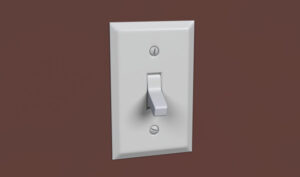A recommended article in the Wall Street Journal why increasing entitlements and dependence on the state are damaging to the American character and turning us into a nation of “Takers”:
Are Entitlements Corrupting Us? YES
 The American republic has endured for well over two centuries, but over the past 50 years, the apparatus of American governance has undergone a radical transformation.
The American republic has endured for well over two centuries, but over the past 50 years, the apparatus of American governance has undergone a radical transformation.
In some basic respects—its scale, its preoccupations, even many of its purposes—the U.S. government today would be scarcely recognizable to Franklin D. Roosevelt, much less to Abraham Lincoln or Thomas Jefferson.
What is monumentally new about the American state today is the vast empire of entitlement payments that it protects, manages and finances. Within living memory, the federal government has become an entitlements machine. . . .
. . . . From the founding of our nation until quite recently, the U.S. and its citizens were regarded, at home and abroad, as exceptional in a number of deep and important respects.
One of these was their fierce and principled independence, which informed not only the design of the political experiment that is the U.S. Constitution but also their approach to everyday affairs.
The proud self-reliance that struck Alexis de Tocqueville in his visit to the U.S. in the early 1830s extended to personal finances.
The American “individualism” about which he wrote did not exclude social cooperation—the young nation was a hotbed of civic associations and voluntary organizations.
But in an environment bursting with opportunity, American men and women viewed themselves as accountable for their own situation through their own achievements—a novel outlook at that time, markedly different from the prevailing attitudes of the Old World (or at least the Continent).
The corollaries of this American ethos were, on the one hand, an affinity for personal enterprise and industry and, on the other, a horror of dependency and contempt for anything that smacked of a mendicant mentality.
Although many Americans in earlier times were poor, even people in fairly desperate circumstances were known to refuse help or handouts as an affront to their dignity and independence.
People who subsisted on public resources were known as “paupers,” and provision for them was a local undertaking. Neither beneficiaries nor recipients held the condition of pauperism in high regard. . . . .
. . . . The U.S. is now on the verge of a symbolic threshold: the point at which more than half of all American households receive and accept transfer benefits from the government.
From cradle to grave, a treasure chest of government-supplied benefits is there for the taking for every American citizen—and exercising one’s legal rights to these many blandishments is now part of the American way of life.
As Americans opt to reward themselves ever more lavishly with entitlement benefits, the question of how to pay for these government transfers inescapably comes to the fore.
Citizens have become ever more broad-minded about the propriety of tapping new sources of finance for supporting their appetite for more entitlements. . . . .












